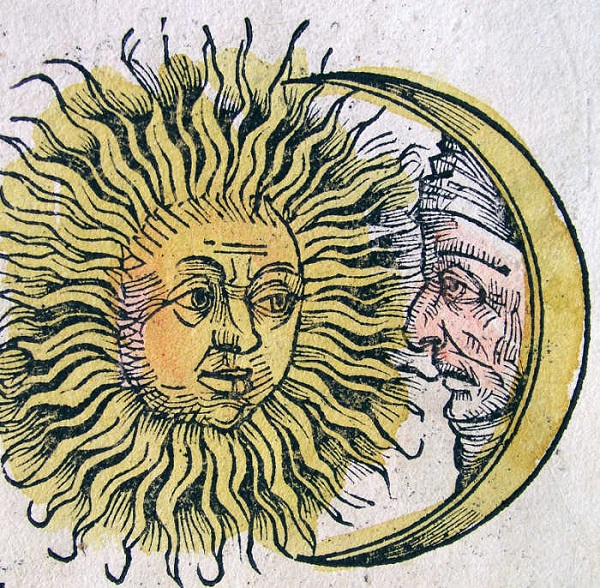FWP:
This verse, like the previous one {124,2}, provides a radically uninterpretable first line. Who could the 'they' be? And to whom could the 'even/also' or 'too' apply? Well, naturally we already guess that it will very probably apply to the beloved. But that only intensifies our curiosity about who might even be in the same league with her-- if indeed she's the one-- for such evil qualities. This suspense-creating opacity in the first line is of course a common structure for a 'mushairah verse', and it's surprising that Nazm seems to consider it some sort of inadvertent flaw.
The first half of the second line also remains rather opaque. To say that the beloved (if indeed it's going to prove to be the beloved) is not human prepares us, after the indictments in the first line, to feel that she is something evil, something cruel, something diabolical.
Then what a powerful, bitter, cynical ending to the line! What is normally a hackneyed compliment to the beloved-- her being (as radiantly beautiful as) the sun and moon-- is here tossed off impatiently, almost contemptuously. It's not only taken for granted, but also made to feel like an insult. In proper mushairah-verse style, it's also withheld until the last possible moment, so that the whole verse bursts on the hearer all at once, with maximum force.
The insult is that she is not only superhuman in her beauty, but subhuman in her moral and ethical behavior. Not only is she worse than humans (she's not a human being at all), but she's also worse than the sun and moon, since the question about whether 'even' they, or they 'too', behave like this, feels so purely indignant and rhetorical.
And yet-- could we not also say that she's beyond the moral and immoral, just as are the sun and moon? The sun kills anyone, innocent or guilty, who is lost in the desert; the moon lights the path of lovers and villains alike. The heavenly bodies move in their own realm, serene and amoral, innocent of any evil intention (or any intention at all) toward humans. Can we not say that the beloved too is amoral in a similar way? On this reading, the first line becomes a genuine question: we are to take seriously the moral parallel between the beloved and the sun and moon, and answer the question thoughtfully and fair-mindedly. It's not clear how we are to answer it, but it becomes one that invites reflection.
For another take on the human versus sun-and-moon valuation,
see {110,6}.

Nazm:
The refrain and the rhyme constrain the poet: having composed a first line about the next one, he brought in 'they' before its antecedent. The reference is to the sun and moon. (133)
== Nazm page 133